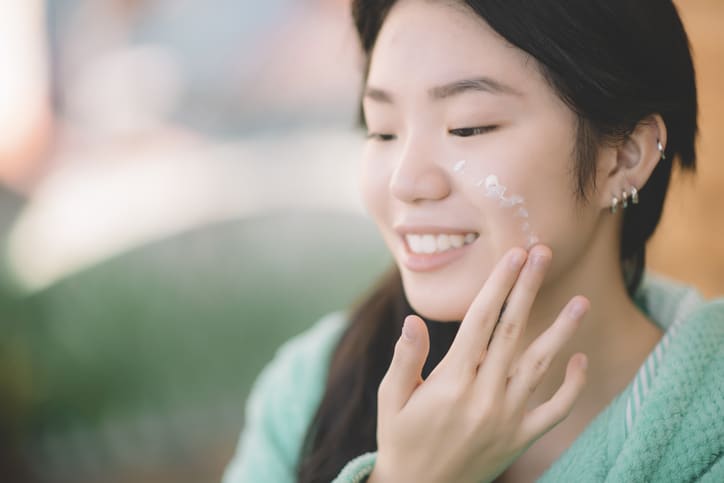When I tell you that I deal with eczema, I mean that as I am writing this my hands are flaring up like angry little strawberries. Like many of Asian descent, my skin is genetically prone to dryness and has been since I was an itchy toddler.
It seems every brand and their pet influencer are claiming that their products are ‘recommended by dermatologists’. This is particularly annoying when all you’re trying to do is not burst into an eczematous flare as the weather shifts.
Here we have Dr Li-Chuen Wong, consultant dermatologist with over 20 years’ experience, to weigh in on skincare for the eczema-prone.
3 YESES
Humectants: “Having eczema-prone skin means there is an inherent skin barrier dysfunction, making it sensitive and prone to dryness,” says Dr Wong. “It’s therefore important to look for ingredients in products that will repair the skin barrier.”
Humectants are lovely little ingredients that attract water to the epidermal layer to help moisturise the skin. They also encourage the shedding of dead skin cells. You may recognise glycerine and hyaluronic acidas popular humectants.
Dr Wong also recommends colloidal oatmeal, an ingredient often used by Aveeno, to protect the skin barrier and provide anti-inflammatory goodness.
Prescription skincare for the bad days: For days with nightmarish flare-ups, Dr Wong points the eczema-prone in the direction of a prescription topical steroid, “applied intensively till the skin is clear will be very helpful”. Never be afraid to reach out to your GP!
Eczema-friendly skincare brands: “Choose fragrance-free and soap-free body washes, along with fragrance-free moisturisers,” says Dr Wong. Tried and true brands include CeraVe and Aveeno.
“For colder, wintry conditions, choose thicker emollients and ointments. For the more humid months, try a lighter lotion that won’t feel so tacky on the skin.”
For sunscreen, Dr Wong recommends low-irritant products, labelled “broad spectrum” and for “sensitive skin”. Go for SPF 50 if you can find it and reapply every 3-4 hours.
2 NO’S
‘Anti-ageing’ products and perfumes: “For eczema-prone skin, ingredients that should definitely be avoided include anti-ageing agents like retinol, glycolic acid and salicylic acid,” says Dr Wong. “These products can be very drying to the skin, triggering an eczema flare.”
Stash the essential oils as well, as it’s important to avoid all fragranced products, which are known for being irritants.
Be wary of ‘recommendations by dermatologists’: “This popular claim, often used on over-the-counter cosmetic products means very loosely, that a dermatologist has been consulted in some manner during the development of the agent,” says Dr Wong.
Meaning that brands can slap on that tagline despite there being no uniform standards on how involved the dermatologist must be, nor any test procedures needed to substantiate the claim.
Always keep in mind that sudden changes of weather will typically worsen eczema. Some people’s eczema will flare during the lower humidity winter months whilst others will worsen during hot humid weather.
While there’s no cure for this genetic condition, the good news is that nowadays we have much better options to control, treat and clear our eczematous moments.
Get all the latest Canberra news, sport, entertainment, lifestyle, competitions and more delivered straight to your inbox with the Canberra Daily Daily Newsletter. Sign up here.



